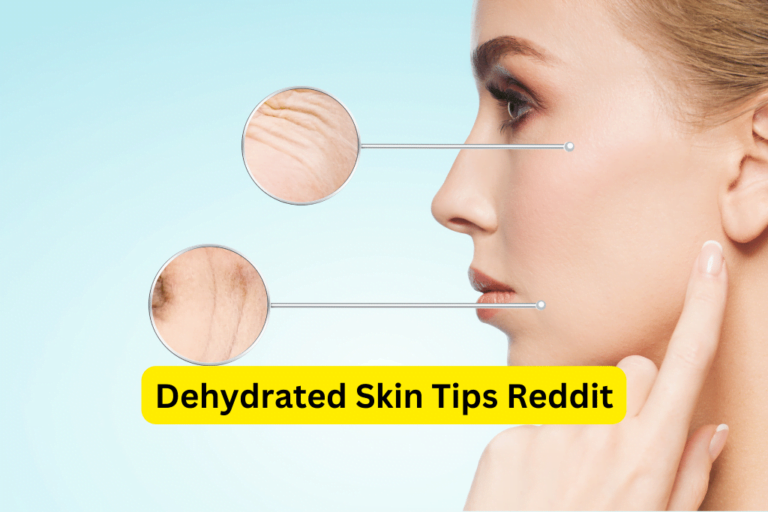Expert Nutrition Tips for Gorgeous Skin
Healthy Skin Tips Nutrition
Having healthy and radiant skin is something that many people strive for. While there are numerous skincare products and treatments available, it’s important to remember that the foundation for healthy skin starts from within. Nutrition plays a crucial role in achieving and maintaining glowing and youthful skin. The food we eat and the lifestyle choices we make can greatly impact the health and appearance of our skin. In this comprehensive guide, we will explore the top 10 nutrition tips for healthy skin, as well as bonus tips for optimal skin health. By following these tips, you can enhance your skincare routine and achieve the glowing skin you desire.
Top 10 Nutrition Tips for Healthy Skin
Tip 1: Hydrate your skin from within
One of the most crucial aspects of maintaining healthy skin is proper hydration. Drinking adequate amounts of water is essential for not only overall health but also for your skin’s health. When your body is well-hydrated, it helps to plump up the skin cells, making your skin appear more radiant and youthful. Additionally, incorporating hydrating foods and beverages into your diet is beneficial for your skin health. Examples of hydrating foods include fruits like watermelon and cucumber, as well as herbal teas.
Tip 2: Include antioxidants in your diet
Antioxidants are powerful compounds that help protect the skin from damage caused by free radicals. They work to neutralize the harmful effects of oxidative stress and promote healthy cell function. To incorporate antioxidants into your diet, include a variety of colorful fruits and vegetables such as berries, spinach, and kale. Other excellent sources of antioxidants include green tea, dark chocolate, and nuts.
Tip 3: Get essential vitamins for skin health
Vitamins play a vital role in maintaining healthy skin. Vitamin C, for example, is essential for collagen production and helps to brighten the skin. Vitamin E, on the other hand, is a potent antioxidant that protects the skin from damage caused by free radicals. To ensure you are getting enough of these essential vitamins, include foods such as citrus fruits, bell peppers, almonds, and avocados in your diet. If necessary, talk to your healthcare provider about the possibility of incorporating supplements.
Tip 4: Consume healthy fats for skin nourishment
Healthy fats are crucial for nourishing and maintaining the health of your skin. Omega-3 fatty acids have anti-inflammatory properties that can help reduce redness and inflammation in the skin. They can be found in fatty fish like salmon, walnuts, and chia seeds. Additionally, incorporating plant-based oils such as olive oil and coconut oil in your cooking can provide your skin with essential nourishment.
Tip 5: Incorporate collagen-boosting foods into your diet
Collagen is a protein that helps maintain the elasticity and firmness of the skin. As we age, our natural collagen production decreases, leading to the formation of wrinkles and sagging skin. To promote collagen production, include foods rich in vitamin C (such as citrus fruits and broccoli), amino acids (found in lean meats, legumes, and eggs), and antioxidants (such as berries and leafy greens) in your diet. Additionally, consider incorporating collagen supplements to further support healthy collagen levels.
Tip 6: Limit refined sugar and processed foods
Refined sugar and processed foods can have a detrimental effect on the health and appearance of your skin. These foods can cause inflammation and lead to an increase in acne breakouts and premature aging. Instead, opt for natural sweeteners like honey or maple syrup and choose whole, unprocessed foods whenever possible. It’s important to note that even healthy foods, when consumed in excess, can have negative effects on the skin, so moderation is key.
Tip 7: Maintain a balanced diet for overall skin health
While certain foods have specific benefits for the skin, it’s important to maintain a balanced diet for overall skin health. This means incorporating a variety of fruits, vegetables, whole grains, lean proteins, and healthy fats into your meals. A well-rounded, nutrient-dense diet helps provide the necessary vitamins and minerals for optimal skin health.
Tip 8: Focus on whole-food sources of nutrients
When it comes to obtaining essential nutrients for your skin, whole foods are often the best choice. While supplements can be beneficial in certain cases, they do not provide the same synergistic benefits as whole foods. For example, eating an orange provides more benefits than simply taking a vitamin C supplement. Additionally, whole foods are often more readily absorbed and utilized by the body.
Tip 9: Consider potential food sensitivities or allergies
Food sensitivities or allergies can manifest in various ways, including skin conditions such as eczema or acne. If you suspect that certain foods may be exacerbating skin problems, it may be worth considering an elimination diet or working with a healthcare professional to identify potential triggers. By eliminating problem foods, you may notice significant improvements in the health and appearance of your skin.
Tip 10: Practice mindful eating for skin well-being
Mindful eating involves being fully present and aware of the food you are consuming. Mindfulness can positively impact overall health, including skin health. When we eat mindfully, we are more likely to make healthier food choices and eat until we are satisfied, rather than overeating. Take time to savor and enjoy your meals, paying attention to the flavors, textures, and overall experience.
Bonus Tips for Optimal Skin Health
Tip 11: Adequate sleep and its impact on skin
Sleep is an essential aspect of overall health and can significantly impact the health and appearance of your skin. When we sleep, our skin repairs and regenerates, allowing for a refreshed and rejuvenated appearance. Aim for 7-9 hours of quality sleep each night to give your skin the time it needs to restore and replenish.
Tip 12: Regular exercise for vibrant skin
Exercise not only benefits your overall health, but it can also help improve the health of your skin. When you exercise, your blood circulation increases, delivering more oxygen and nutrients to the skin cells. Additionally, regular physical activity helps reduce stress, which can have positive effects on your skin. Find skin-friendly exercises that you enjoy, such as yoga, walking, or swimming, and aim for at least 30 minutes of exercise most days of the week.
Conclusion
Nutrition plays a crucial role in maintaining healthy and radiant skin. By incorporating the top 10 nutrition tips for healthy skin into your daily routine, you can enhance your skincare routine and achieve optimal skin wellness. Remember to hydrate your skin from within, include antioxidants and essential vitamins in your diet, consume healthy fats, incorporate collagen-boosting foods, limit refined sugar and processed foods, maintain a balanced diet, focus on whole-food sources of nutrients, consider food sensitivities, and practice mindful eating. Additionally, prioritize adequate sleep and regular exercise for optimal skin health. With these nutrition tips and lifestyle choices, you can stand out from the competition and have the beautiful and radiant skin you desire.
"Have You Seen Mike Walden's new holistic acne System yet? It's called "Acne No More" I've read the whole thing (all 223 pages) and there's some great information in there about how to naturally and permanently eliminate your acne without drugs, creams or any kind of gimmicks. I highly recommend it - it's very honest and straightforward without all the hype and b.s. you see all over the net these days. Here's the website where you can get more information:
Click Here -->AcneNoMore









